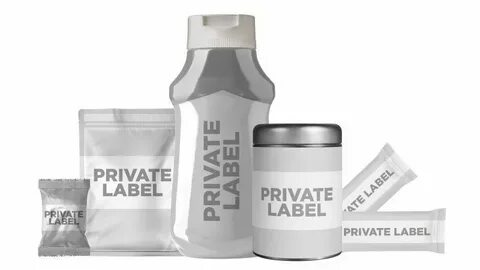How Private Label Products Are Reshaping the Retail Industry

The retail industry is undergoing a dramatic transformation, and one of the key drivers behind this shift is the rise of private label products. Once seen as generic alternatives to national brands, private label products have evolved into high-quality, in-demand options that offer consumers better value, exclusivity, and affordability. For retailers, private labeling has become a powerful tool to differentiate themselves, build customer loyalty, and boost profit margins. In this article, we will explore how private label products are reshaping the retail industry and why they are the future of modern commerce.
Understanding Private Label Products
Private label products are goods manufactured by one company but sold under another retailer’s brand. Unlike widely distributed national brands, private label products are exclusive to a specific retailer, allowing for greater control over product quality, branding, and pricing. These products span various industries, including food and beverages, skincare, cosmetics, fashion, electronics, and home essentials.
Examples of successful private label brands include:
-
Kirkland Signature (Costco)
-
Great Value (Walmart)
-
Amazon Basics (Amazon)
-
Target’s Up & Up (Target)
-
Trader Joe’s private label food products
Retailers are leveraging private label products to create strong brand identities, increase profitability, and enhance customer loyalty.
How Private Label Products Are Transforming Retail
1. Increased Profitability and Higher Margins
One of the biggest reasons retailers are embracing private label products is the ability to maximize profit margins. By cutting out middlemen and sourcing directly from manufacturers, retailers can offer competitive prices while maintaining higher profitability.
2. Brand Exclusivity and Customer Loyalty
Since private label products are exclusive to a particular store, they encourage repeat purchases. Customers who trust a retailer’s private label offerings are more likely to return for exclusive, high-quality alternatives to national brands.
3. Greater Control Over Product Quality and Pricing
Unlike national brands, where retailers have little say in quality and pricing, private labeling allows businesses to maintain full control over the ingredients, manufacturing process, and pricing structure. This ensures consistency and helps build customer trust.
4. Customization and Flexibility in Product Offerings
Retailers can tailor private label products to align with customer demands and trends. For example, in the beauty industry, brands are launching vegan, organic, and cruelty-free private label skincare products to meet rising consumer expectations.
5. Competing with National Brands
Consumers today are increasingly prioritizing affordability and quality over brand names. High-performing private label brands now rival top national brands, offering superior products at a lower price point.
6. Enhancing the E-Commerce Experience
The rise of online shopping has fueled the demand for private label products. E-commerce giants like Amazon and Walmart have aggressively expanded their private label portfolios, offering everything from electronics to home goods under their exclusive brands.
7. Adapting to Market Trends and Consumer Preferences
Retailers can quickly adapt private label products to changing market demands. From sustainable packaging to clean beauty formulations, private label brands allow businesses to stay ahead of industry trends.
Key Industries Benefiting from Private Label Growth
-
Grocery and Food Industry
-
Private label food brands are booming due to consumer demand for organic, non-GMO, and health-conscious options.
-
Retailers like Trader Joe’s and Whole Foods dominate with their exclusive food selections.
-
-
Beauty and Skincare Industry
-
Many brands are launching private label skincare and cosmetic lines focusing on natural, paraben-free, and dermatologist-approved formulations.
-
-
Fashion and Apparel
-
Retailers like Zara and H&M are thriving with their in-house private label clothing lines, ensuring fast production and affordability.
-
-
Electronics and Home Goods
-
Brands like Amazon Basics have disrupted the electronics industry with affordable, high-quality alternatives to premium brands.
-
-
Health and Wellness
-
Private label vitamins, supplements, and fitness products are gaining traction as consumers prioritize health-conscious choices.
-
The Future of Private Label Products in Retail
As consumer preferences continue to evolve, the future of retail will be shaped by private label products. With advancements in branding, marketing, and e-commerce, private label brands will continue to challenge national brands, providing retailers with an edge in the market.
Retailers that invest in high-quality, well-branded private label products will not only drive revenue but also build long-term customer relationships. Private labeling is no longer just an option—it’s a necessity for businesses looking to thrive in the competitive retail space.
Conclusion
Private label products are revolutionizing the retail industry by offering retailers higher profit margins, better customer loyalty, and complete control over product quality. As consumer shopping habits shift towards affordability, exclusivity, and value, private label brands are emerging as the key to long-term success.
If you’re a retailer looking to differentiate your business, private labeling is the ultimate strategy for brand growth and customer retention. By embracing this trend, you can stay ahead of the competition and build a sustainable, profitable brand.
For more insights on private labeling and retail trends, stay tuned to Sbellus!
- Art
- Causes
- Crafts
- Dance
- Drinks
- Film
- Fitness
- Food
- Games
- Gardening
- Health
- Home
- Literature
- Music
- Networking
- Other
- Party
- Religion
- Shopping
- Sports
- Theater
- Wellness


